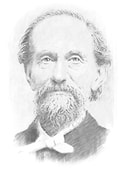Matthew 7
 Nelisa Mthethwa
Nelisa Mthethwa
Hypocrisy is the practice of claiming to have higher standards or more noble beliefs than is the case. In the context of Matthew 7, to be a hypocrite means at least two things:
- To judge the other person according to man-made standards instead of God’s standard for it is God who is Lord and judge.
- To call out sin in another person without first reflecting in your own heart (Matthew 7:3-4).
 Charles L Allen
Charles L Allen
"I think of at least three reasons why it is wrong to pick out some fellow who has not done as well as you and feel superior to him.
1) You may be wrong because that fellow may be doing a lot better than you. God judges in light of the circumstances of one's life. Maybe, when everything is considered, that fellow is doing far better than you are. Jesus warns: "With what judgement ye judge, ye shall be judged" (Matt 7:2). Be careful how you look at others.
2) Comparing yourself with someone who seemingly has not done as well as you, makes you conceited. Conceit is the most fatal of all spiritual diseases. When you go to the doctor he will ask, "How is your appetite?" He knows that if you lose your appetite, you will not eat properly, and your body will waste away. Conceit kills one's spiritual appetite. It will cause one to cease to feed on his soul and eventually he will die spiritually.
3) The main reason it is wrong to compare ourselves to with some less fortunate person is, it is an insult to God. We remember how Richard Baxter, as he watched some poor wretch go off to prison said, "There but for the grace of God, go I." Maybe God gave you more talents and better opportunities. Maybe He has poured His blessings more freely upon you. The very fact that you are getting along better than somebody else should drive you to your knees in thanksgiving.
If you feel any conceit, it is because you have been looking down. A mountain shames a molehill until humbled by the stars. Look up to God." --Charles L Allen; When The Heart is Angry; 1955
1) You may be wrong because that fellow may be doing a lot better than you. God judges in light of the circumstances of one's life. Maybe, when everything is considered, that fellow is doing far better than you are. Jesus warns: "With what judgement ye judge, ye shall be judged" (Matt 7:2). Be careful how you look at others.
2) Comparing yourself with someone who seemingly has not done as well as you, makes you conceited. Conceit is the most fatal of all spiritual diseases. When you go to the doctor he will ask, "How is your appetite?" He knows that if you lose your appetite, you will not eat properly, and your body will waste away. Conceit kills one's spiritual appetite. It will cause one to cease to feed on his soul and eventually he will die spiritually.
3) The main reason it is wrong to compare ourselves to with some less fortunate person is, it is an insult to God. We remember how Richard Baxter, as he watched some poor wretch go off to prison said, "There but for the grace of God, go I." Maybe God gave you more talents and better opportunities. Maybe He has poured His blessings more freely upon you. The very fact that you are getting along better than somebody else should drive you to your knees in thanksgiving.
If you feel any conceit, it is because you have been looking down. A mountain shames a molehill until humbled by the stars. Look up to God." --Charles L Allen; When The Heart is Angry; 1955
 Grayson Gilbert
Grayson Gilbert
Simply by reading this passage, one can see there is a bit more going on here than the fact that someone is judging another person. As we can see in v. 2, the conjunction “for” explains the reason behind the command not to judge. The way or manner in which we judge will be used against us. In other words, the same standard we apply for others will be the standard by which we are judged. There is an inherent warning here for people—that much is clear.
The implication is rather simple: judge and you will also be judged. How you judge someone is the same way you will be judged, hence why Christ explains we ought to first examine our own motives and actions first. --Grayson Gilbert; The Chorus in the Chaos
The implication is rather simple: judge and you will also be judged. How you judge someone is the same way you will be judged, hence why Christ explains we ought to first examine our own motives and actions first. --Grayson Gilbert; The Chorus in the Chaos
|
We must remember that Jesus urged all of us to take heed and worry far more about the planks in our own eyes before we concerned ourselves with the speck of dust in our neighbor’s (Matt. 7:3). Paul, with all his own extraordinary spiritual insight, claimed that on our best days we are only seeing as through a blurry glass (I Cor. 13:12). David recognized that he couldn’t “discern his errors” and then asked the Lord to “declare him innocent of hidden faults.” He also asked the Lord, “Search me, O God, and know my heart! Try me and know my thoughts. And see if there be any grievous way in me and lead me in the way everlasting” (Ps. 139:23-24). In all these passages we see that we are crippled with spiritual blindness. The initial and primary problem is the face in the mirror. Until we deal with that first, we aren’t in a position to opine, teach, or exhort. -Ben Sciacca
|

One of the most misused verses in the Bible is, "Judge not, that ye be not judged." (Matthew 7:1). Every Scripture verse should be read in its context, if we are to properly understand the true meaning. In vs.2-5 of this same chapter it is evident that v.1 is referring to hypocritical judgment. A brother who has a beam in his own eye should not be judging the brother who may have a mote in his eye. The lesson is plain, you cannot judge another for his sin if you are guilty of the same sin.
Those who cling to "Judge not, that ye be not judged," to condemn those who expose error should read the entire chapter. Jesus said, "Beware of false prophets, which come to you in sheep's clothing..." (v.15). How can we know false prophets unless we judge them by the Word of God? If we know the false prophets, how can we fail to warn the sheep of these "ravening wolves?" All through the Bible we find proof that they should be identified and exposed. "Ye shall know them by their fruits. Do men gather grapes of thorns, or figs of thistles? Even so every good tree bringeth forth good fruit; but a corrupt tree bringeth forth evil fruit" (vs.16,17). Did the Lord mean that we could not judge the tree (person), by the fruit of their life and doctrine? Certainly not, for you cannot know without judging. All judgment should be on the basis of Bible teaching, not according to whims or prejudices. |
I’ve had it with people quoting Matthew 7:1. I’m sick of the casual smugness with which people misuse Jesus. I’m frustrated on behalf of my fellow Christians who seem to be genuinely stymied by this tactic, reduced sometimes to sputtering incoherence or muted in a well-intentioned but misapplied obedience. It’s time to clear the ground around Matthew 7:1 and set the record straight about just what we Christians have been commanded to do by our Master and King.
Let’s begin with what’s obvious. The person who says to you, “Don’t judge” has just judged you. Think about this for a moment. To say, “You shouldn’t judge” is itself a judgment, and this fact is quite conveniently overlooked in these public discourses. What is more, I find that the person who tells you not to judge is quick to make other, more culturally acceptable judgments—he or she will be more than happy to pronounce that people shouldn’t drink or drive, or that we should cut carbon emissions to save the planet. These are judgments as well—they just happen to be socially acceptable ones. And so the real reason why such a person quotes Jesus in response to you is because he or she doesn’t like what you’re saying, “I have judged your judgment,” he says, “and I don’t like it!”
That is the first irony about this passage, and the primary reason why pretty much nobody should ever quote those three words to anyone else during a dialogue—to utter the phrase “Do not judge” is to pass judgment. It is fundamentally self-defeating and hypocritical.
This leads us to wonder what on earth Jesus is actually saying, and to understand that we’ll have to quote the whole passage and not just those three convenient words. The paragraph starts in verse 1 and ends in verse 6. Look at the whole thing now:
1“Do not judge so that you will not be judged. 2 For in the way you judge, you will be judged; and by your standard of measure, it will be measured to you. 3 Why do you look at the speck that is in your brother’s eye, but do not notice the log that is in your own eye? 4 Or how can you say to your brother, ‘Let me take the speck out of your eye,’ and behold, the log is in your own eye? 5 You hypocrite, first take the log out of your own eye, and then you will see clearly to take the speck out of your brother’s eye. Do not give what is holy to dogs, and do not throw your pearls before swine, or they will trample them under their feet, and turn and tear you to pieces.”
If you read that carefully, you’ll be aware that there is a subtle irony here—namely, that as soon as Jesus tells us not to judge, he then goes on to give advice on how to judge. Let that soak in for a moment. Jesus, after saying “do not judge” teaches us how to judge. This means, at the least, that whatever Jesus means by the words “do not judge,” he can’t mean never to speak in public discourse—to accomplish that would mean, essentially, ceasing to speak at all (which is quite possibly what our non-Christian and ill-informed Christian interlocutors desire).
When we look at these verses carefully, I think we discover four principles of Christian judgment—or, rather, four principles for making judgments as a Christian and in Christian community. We must remember that this teaching is situated within the Sermon on the Mount, Jesus’ magnum opus for Christian living. These are words for the people of God living as the people of God alongside one another.
So, what are these four principles? I call them the principles of Disposition, of Standards, of Priority, and of Propriety.
#1 The Principle of Disposition
Our job is to be impartial and alongside.
This first principle deals with our posture in community, and is drawn directly from verses 1-2—that we are not to judge and that we are to be cautious with the standard we use. Why should this be? Well, the second verse informs the first. To judge someone justly requires that I have the following characteristics: I must have authority to judge that person, I must have full knowledge of that person’s life and situation, I must have a perfect grasp of the standards of right and wrong, and I must myself be in a position of perfect rightness relative to that standard. Obviously I lack all four of those characteristics and am disqualified as a judge. So do you, and so does everyone on earth. Nobody on earth is equipped to make perfectly just judgments. And that means that my disposition must change relative to others. I, by virtue of my lack of omniscience and sin must never place myself in a position superior to another person. I am not a judge.
This is a first principle of preserving Christian community—that we are, in a Divine sense, all equal under the law, equally damned, equally recipients of grace, and that there is only one Judge, and we dare not attempt to usurp His place. The best we can do is come alongside one another. This will mean speaking with humility, rather than power.
#2 The Principle of Standards
This second principle is inseparably bound to the first—they are arguably the same sentence. In this second verse we are given the means by which we are to judge one another—that is, by means of a measuring rod. In essence, if we are going to make judgments we must ensure that we are appealing to the correct standard. That standard, for the Christian, is the life and teachings of Jesus our Lord. He is the perfect, omniscient, authorized judge of all humanity. His is the perfect life against which all our lives will be judged, and his words to us are the instructions against which our conduct, choices, and obedience will be measured on the Last Day. Christ is the measuring rod for human life.
The error of our ways is when we apply our selves as the standard of judgment against others. With the measuring rod you measure, Jesus states clearly, you yourself will be measured. If the standard you use to judge others is your self, then you will find yourself judged as well. Consequently the judgments will be self-defeating. Judge the wealth of others, and you will be judged by your own abuse of wealth. Judge the beauty of others, and you will be revealed for the shallow, image-conscious person you are. Judge the economic life-situation of a person, and you will be judged for the ignorance you have of your own economics.
All this to say that making judgments as a Christian means always appealing to absolute standards—the life of Christ, the teachings of the Scriptures, the Doctrines of the Church. “Absolute” in that previous sentence is synonymous with “objective”—the standard has to be outside of your self. We do not judge based on opinion, or preference, or personal discomfort, but on what we believe to be the revealed will of God. Will we be perfect? Of course not, but that may be precisely why we have the next principle.
#3 The Principle of Priority
This principle comes from verses 3-5 where Jesus describes the procedure for log surgery. In short, we are commanded to judge ourselves first. Quite simple, really: before you go barging into someone else’s life in the community (especially that of faith), ensure that you have applied the perfect standard of Jesus to your self. If you discover that you have a log in your eye—some glaring omission of obedience—get that sorted first. Then, Jesus says, “you will see clearly to take the speck out of your brother’s eye.” Nobody wants a speck of sawdust in his or her eye—it is profoundly uncomfortable. Of course, the only thing worse than a speck of sawdust is an unhelpful idiot trying to help me remove it.
The point is not to never make judgments, but rather to make judgments that are at the same time clear and empathetic. Judgments must be clear because blundering about with logs in our eyes only hurts other people and renders us hypocrites. Removing the log removes the hypocrisy and increases clarity. Then, once we’ve performed our log surgery, we’ll be more empathetic with judging others. We’ll know what it feels like and be far more tender, gently assisting the brother or sister with the speck. Much of Christian discourse would improve with a little more empathy—that is, remembering, as we pronounce judgments, however true they may be, that hearing them can be painful and difficult for others. We must imaginatively consider the impact that Christian teaching will have on the world both before and as we pronounce it. Then we’ll be effective speck-helpers for others.
#4 The Principle of Propriety
This final principle comes from the somewhat confusing final verse (7:6) where Jesus says that bit about throwing pearls before swine, or giving holy things to dogs. To state this simply, we are being taught to use propriety when executing our judgments. In other words, only apply your judgments to people who will listen to you. Only judge the willing. Make good decisions about when and to whom we speak Christian truth. Not every situation requires us to speak. Not every person will be receptive to our faith. Not every believer in the Church will be amenable to Godly correction. So make an initial judgment. After all, the knowledge you have of God, Jesus, and the Kingdom is holy and sacred, it is like fine and precious jewels. Offer these jewels of Godly wisdom to people who are profane, and not only will they not know what to do with them, but very likely they might turn on you because of it.
You must make a judgment, then, about who you will judge. Is this a person who will listen to me? Is this a person who will honor the teachings of Jesus? If the answer is no, then you don’t need to worry about correcting them. Your disposition, your right standard, and your log surgery will be meaningless. You can still love the person, and maybe you can plant some seeds of God’s truth in his or her life, but by the words of Jesus you have permission to keep your judgments to yourself. In other words, don’t lose sleep over people who ignore God’s word. --Mustard Seed Faith
Let’s begin with what’s obvious. The person who says to you, “Don’t judge” has just judged you. Think about this for a moment. To say, “You shouldn’t judge” is itself a judgment, and this fact is quite conveniently overlooked in these public discourses. What is more, I find that the person who tells you not to judge is quick to make other, more culturally acceptable judgments—he or she will be more than happy to pronounce that people shouldn’t drink or drive, or that we should cut carbon emissions to save the planet. These are judgments as well—they just happen to be socially acceptable ones. And so the real reason why such a person quotes Jesus in response to you is because he or she doesn’t like what you’re saying, “I have judged your judgment,” he says, “and I don’t like it!”
That is the first irony about this passage, and the primary reason why pretty much nobody should ever quote those three words to anyone else during a dialogue—to utter the phrase “Do not judge” is to pass judgment. It is fundamentally self-defeating and hypocritical.
This leads us to wonder what on earth Jesus is actually saying, and to understand that we’ll have to quote the whole passage and not just those three convenient words. The paragraph starts in verse 1 and ends in verse 6. Look at the whole thing now:
1“Do not judge so that you will not be judged. 2 For in the way you judge, you will be judged; and by your standard of measure, it will be measured to you. 3 Why do you look at the speck that is in your brother’s eye, but do not notice the log that is in your own eye? 4 Or how can you say to your brother, ‘Let me take the speck out of your eye,’ and behold, the log is in your own eye? 5 You hypocrite, first take the log out of your own eye, and then you will see clearly to take the speck out of your brother’s eye. Do not give what is holy to dogs, and do not throw your pearls before swine, or they will trample them under their feet, and turn and tear you to pieces.”
If you read that carefully, you’ll be aware that there is a subtle irony here—namely, that as soon as Jesus tells us not to judge, he then goes on to give advice on how to judge. Let that soak in for a moment. Jesus, after saying “do not judge” teaches us how to judge. This means, at the least, that whatever Jesus means by the words “do not judge,” he can’t mean never to speak in public discourse—to accomplish that would mean, essentially, ceasing to speak at all (which is quite possibly what our non-Christian and ill-informed Christian interlocutors desire).
When we look at these verses carefully, I think we discover four principles of Christian judgment—or, rather, four principles for making judgments as a Christian and in Christian community. We must remember that this teaching is situated within the Sermon on the Mount, Jesus’ magnum opus for Christian living. These are words for the people of God living as the people of God alongside one another.
So, what are these four principles? I call them the principles of Disposition, of Standards, of Priority, and of Propriety.
#1 The Principle of Disposition
Our job is to be impartial and alongside.
This first principle deals with our posture in community, and is drawn directly from verses 1-2—that we are not to judge and that we are to be cautious with the standard we use. Why should this be? Well, the second verse informs the first. To judge someone justly requires that I have the following characteristics: I must have authority to judge that person, I must have full knowledge of that person’s life and situation, I must have a perfect grasp of the standards of right and wrong, and I must myself be in a position of perfect rightness relative to that standard. Obviously I lack all four of those characteristics and am disqualified as a judge. So do you, and so does everyone on earth. Nobody on earth is equipped to make perfectly just judgments. And that means that my disposition must change relative to others. I, by virtue of my lack of omniscience and sin must never place myself in a position superior to another person. I am not a judge.
This is a first principle of preserving Christian community—that we are, in a Divine sense, all equal under the law, equally damned, equally recipients of grace, and that there is only one Judge, and we dare not attempt to usurp His place. The best we can do is come alongside one another. This will mean speaking with humility, rather than power.
#2 The Principle of Standards
This second principle is inseparably bound to the first—they are arguably the same sentence. In this second verse we are given the means by which we are to judge one another—that is, by means of a measuring rod. In essence, if we are going to make judgments we must ensure that we are appealing to the correct standard. That standard, for the Christian, is the life and teachings of Jesus our Lord. He is the perfect, omniscient, authorized judge of all humanity. His is the perfect life against which all our lives will be judged, and his words to us are the instructions against which our conduct, choices, and obedience will be measured on the Last Day. Christ is the measuring rod for human life.
The error of our ways is when we apply our selves as the standard of judgment against others. With the measuring rod you measure, Jesus states clearly, you yourself will be measured. If the standard you use to judge others is your self, then you will find yourself judged as well. Consequently the judgments will be self-defeating. Judge the wealth of others, and you will be judged by your own abuse of wealth. Judge the beauty of others, and you will be revealed for the shallow, image-conscious person you are. Judge the economic life-situation of a person, and you will be judged for the ignorance you have of your own economics.
All this to say that making judgments as a Christian means always appealing to absolute standards—the life of Christ, the teachings of the Scriptures, the Doctrines of the Church. “Absolute” in that previous sentence is synonymous with “objective”—the standard has to be outside of your self. We do not judge based on opinion, or preference, or personal discomfort, but on what we believe to be the revealed will of God. Will we be perfect? Of course not, but that may be precisely why we have the next principle.
#3 The Principle of Priority
This principle comes from verses 3-5 where Jesus describes the procedure for log surgery. In short, we are commanded to judge ourselves first. Quite simple, really: before you go barging into someone else’s life in the community (especially that of faith), ensure that you have applied the perfect standard of Jesus to your self. If you discover that you have a log in your eye—some glaring omission of obedience—get that sorted first. Then, Jesus says, “you will see clearly to take the speck out of your brother’s eye.” Nobody wants a speck of sawdust in his or her eye—it is profoundly uncomfortable. Of course, the only thing worse than a speck of sawdust is an unhelpful idiot trying to help me remove it.
The point is not to never make judgments, but rather to make judgments that are at the same time clear and empathetic. Judgments must be clear because blundering about with logs in our eyes only hurts other people and renders us hypocrites. Removing the log removes the hypocrisy and increases clarity. Then, once we’ve performed our log surgery, we’ll be more empathetic with judging others. We’ll know what it feels like and be far more tender, gently assisting the brother or sister with the speck. Much of Christian discourse would improve with a little more empathy—that is, remembering, as we pronounce judgments, however true they may be, that hearing them can be painful and difficult for others. We must imaginatively consider the impact that Christian teaching will have on the world both before and as we pronounce it. Then we’ll be effective speck-helpers for others.
#4 The Principle of Propriety
This final principle comes from the somewhat confusing final verse (7:6) where Jesus says that bit about throwing pearls before swine, or giving holy things to dogs. To state this simply, we are being taught to use propriety when executing our judgments. In other words, only apply your judgments to people who will listen to you. Only judge the willing. Make good decisions about when and to whom we speak Christian truth. Not every situation requires us to speak. Not every person will be receptive to our faith. Not every believer in the Church will be amenable to Godly correction. So make an initial judgment. After all, the knowledge you have of God, Jesus, and the Kingdom is holy and sacred, it is like fine and precious jewels. Offer these jewels of Godly wisdom to people who are profane, and not only will they not know what to do with them, but very likely they might turn on you because of it.
You must make a judgment, then, about who you will judge. Is this a person who will listen to me? Is this a person who will honor the teachings of Jesus? If the answer is no, then you don’t need to worry about correcting them. Your disposition, your right standard, and your log surgery will be meaningless. You can still love the person, and maybe you can plant some seeds of God’s truth in his or her life, but by the words of Jesus you have permission to keep your judgments to yourself. In other words, don’t lose sleep over people who ignore God’s word. --Mustard Seed Faith
 Andrew Murray
Andrew Murray
“Ask and you shall receive; everyone that asks receives. This is the fixed eternal law of the kingdom: If you ask and receive not, it must be because there is something amiss or wanting in the prayer. Hold on; let the Word and Spirit teach you to prat aright, but do not let go the confidence he seeks to waken: Everyone who asks receives....Let every learner in the school of Christ therefore take the Master's word in all simplicity....Let us beware of weakening the word with our human wisdom.” ― Andrew Murray

These are God’s words. And like the law in Eden, they are simple and straightforward enough. But as we witness the opinion of the masses oppose God, believing His Word becomes a greater challenge. In this Matthew passage Jesus paints a picture of throngs of humanity shuffling along a wide road. No one knows or cares about where the road they’re on is leading, they just do what everyone else is doing. But He also speaks of a tiny little gate, and a tiny little path that leads off beyond the gate, that is unnoticed, or if it is, it is ignored. But some notice, and then they enter the gate and begin walking along a wholly different path than the rest of humanity. And over time their values, and their thinking, become different than that of those on the wide path. They are changed.
 Oscar Amaechina
Oscar Amaechina
The Apostle Paul was emphatic when he warned the Philippian Church to be careful of this group of people. "For many, of whom I have often told you and now tell you even with tears, walk as enemies of the cross of Christ"(Philippians 3:18). They pretend to be godly but secretly work against the Gospel. They oppress and secretly persecute those who love and preach the cross.
Jesus also warned His disciples to be careful of those who are demonic but parade themselves as angels of light: "Watch out for false prophets. They come to you in sheep’s clothing, but inwardly they are ferocious wolves" (Mathew 7:15). In our time, there are similar false prophets, and their mode of operation has never changed.
"But there were also false prophets among the people, just as there will be false teachers among you. They will secretly introduce destructive heresies, even denying the sovereign Lord who bought them — bringing swift destruction on themselves" (2 Peter 2:1). There are now false teachers whose mandate is to introduce and teach errors that will take Christ out of the center of Christianity and place Him in the margin or remove Him altogether. --Oscar Amaechina; Christian Post: Beware of false prophets and false brethren 2.24.22
Jesus also warned His disciples to be careful of those who are demonic but parade themselves as angels of light: "Watch out for false prophets. They come to you in sheep’s clothing, but inwardly they are ferocious wolves" (Mathew 7:15). In our time, there are similar false prophets, and their mode of operation has never changed.
"But there were also false prophets among the people, just as there will be false teachers among you. They will secretly introduce destructive heresies, even denying the sovereign Lord who bought them — bringing swift destruction on themselves" (2 Peter 2:1). There are now false teachers whose mandate is to introduce and teach errors that will take Christ out of the center of Christianity and place Him in the margin or remove Him altogether. --Oscar Amaechina; Christian Post: Beware of false prophets and false brethren 2.24.22
|
Matthew 7:17-20:
Even so, every good tree bears good fruit, but a bad tree bears bad fruit. A good tree cannot bear bad fruit, nor can a bad tree bear good fruit. Every tree that does not bear good fruit is cut down and thrown into the fire. Therefore by their fruits you will know them. |
The study of character is really the study of how to mature into a "healthy tree" or a person who naturally inclined to do the right thing.
|
 Thomas Adams
Thomas Adams
The fool is the wicked. An ignorant heart is always a sinful heart, and a man without knowledge is a man without grace. So Tamar to Amnon under his ravishing hands: 2 Sam. 13:13, 'Do not this folly;' if thou doest it, 'thou shalt be as one of the fools in Israel.' Ignorance cannot excusare à toto; wilful, not à tanto. 2 Thess. 1:8, 'Christ shall come in flaming fire, rendering vengeance to them that know not God.' The state of these fools is fearful. Like hooded hawks, they are easily carried by the infernal falconer to hell. Their lights are out, how shall their house scape robbing? These fools have a knowledge, but it is to do evil, Jer. 4:22. They have also a knowledge of good, but not scientiam approbationis,—they know, but they refuse it. So God justly quits them; for though he know them ad scientiam, he will not know them ad approbationem, but gives them a Discedite, nescio vos: Matt. 7:23, 'I know you not: depart from me, ye workers of iniquity.' A man may be a fool two ways: by knowing too little, or too much. --Thomas Adams; The Works of Thomas Adams, Volume 1
 Brandon Robertson
Brandon Robertson
“We are saved by faith alone, apart from works!” This is a very popular Protestant catch phrase. The doctrine of sola fide (faith alone) was developed by the Reformers in response to the Roman Catholic Churches corrupted teachings that emerged in the 16th Century teaching that one could gain favor with God and shave off years in Hell and Purgatory by giving money to the church or doing acts of penance. The intention of the doctrine of faith alone was very good- to correct the error that our salvation could be earned or that God’s grace could be manipulated. But like most doctrines that are formulated in response to another group’s doctrine, it often goes too far. One of the clearest teachings throughout all four Gospel accounts is that the way to enter the Kingdom of God is through living in obedience to the Law of Christ. Time and time again, Jesus makes very clear statements that condemn those who think that they will be saved because they believe the right things or do the right religious rituals. Jesus responds to people who believe they are religious and deserve heaven by saying that their outward religiosity is detestable to God and the only thing God desires is that they would exercise their faith by obeying the command of God- to do justice, love mercy, and walk humbly. (Micah 6:8) Jesus says if anyone claims to be right with God but doesn’t serve the poor, needy, oppressed, marginalized, sick, diseased, and sinful, then they do not have a relationship with God. No matter what they proclaim with their lips. No matter how religious they may appear. Jesus says those who don’t obey will have no part in his Kingdom. He makes very clear that the way to “inherit eternal life” is through loving God and loving our neighbor. Isn’t it astonishing, then, how many Christians today have been taught that salvation comes through right believing instead of right practice- a message that is fundamentally contrary to the words of Jesus. (And even more to his little brother James who says, “You see that a person is justified by works and not by faith alone.” James 2:24 ESV) --Brandon Robertson: 4 Teachings Of Jesus That His Followers (Almost) Never Take Seriously 6.19.14
When we think of knowledge, we as westerners think of intellectual. But, the eastern idea in the Bible has more to do with experience. We know God when we experience Him. When Adam “knew” Eve, he experienced her intimately such that she conceived a child (Gen 4:1). We do not really know God in the biblical sense if we only know about Him. Thus to both know about and know by experience are critical to knowing God. (This is at play in Matt 7:21-23. They knew about the works of God and performed them themselves as religious activity, but they did not have an intimate knowing relationship with Jesus.)
Without understanding the theology and the details of the Bible, we have insufficient understanding to drive our hearts to a solid base for Christlke change. Not that we can’t change by mere experience, but that change can be tossed and blown about by every different experience. There is nothing solid to anchor the experience to. I can have experience of other people, but unless I combine those experiences with real understanding of what makes them who they are, their character, their likes and dislikes, I end up missing the boat on getting the most out of my relationship with them. Some will say that their experience is driven by the Holy Spirit and they do not need any intellectual part of their knowledge of God. But they are ignoring (because of lack of intellectual knoweldge concerning the Scriptures) that it is the Holy Spirit who inspired the human authors of the Bible and who illuminates its meaning to the reader (2 Tim 3:16-17). The Holy Spirit uses experience and intellectual knowledge to bring about christlike character. Both are required to work together. If experience alone sufficed, we wouldn’t have the word. If the word alone sufficed, we wouldn’t need to receive the Spirit.
Without a relational experience, no application of the “what” of Christian life (the intellectual part) can take place to effect real life change. What we learn from the Bible has to be understood against the real world that exists. It corresponds since it is the same God who created the world who gave us the Bible. Thus, the Bible helps us understand our experiences and help us improve in our relationships with God, others, and nature. Our relationships with God, others, and nature and how we experience them helps us come to better understanding of what the Bible is saying. In this sense, the intellectual drives the “what” for the heart, and the relational experiences drive the mind to understand “why”.
When the intellectual and the relational experience is not integrated in the Christian life, one of two things can happen: one can have a dead faith (being either non-relational, thus not an active working faith, or a faith in something other than Christ for who He is, such as faith in religion instead of Christ, or in a new age mystical type of Christianity, or a faith in faith to name and claim wordly blessings, or a faith in knowledge for its own sake), or one can be legalistic (which is harsh, judgemental, and also non-relational).
So, in all of this, one who ignores doctrine, is often errant in knowing what they ought to know about God, Jesus, the church, sin, etc., and is likely to not live life out the way that God desires for them. Many who mix New Age and Christianity are in this category. And, the one who ignores relationships – who only studies and does not develop relationships, is likely not living out life the way God desires for them either. If God reconciled us to Him and has lead us to reconciliation with one another, then doesn’t it make sense we should be having relationships with others (see 2 Corin 5:14-21)? It is part of what it means to be human. (This coming from a person that went into science to avoid people.) That is one reason fellowship and Church is so important! We are one family in God. So we should act like one family in God who love one another and are even willing to die for one another if a situation calls for it.
SOURCE: Isaiah 6:8 Ministry: A Balance in Christian Character
Without understanding the theology and the details of the Bible, we have insufficient understanding to drive our hearts to a solid base for Christlke change. Not that we can’t change by mere experience, but that change can be tossed and blown about by every different experience. There is nothing solid to anchor the experience to. I can have experience of other people, but unless I combine those experiences with real understanding of what makes them who they are, their character, their likes and dislikes, I end up missing the boat on getting the most out of my relationship with them. Some will say that their experience is driven by the Holy Spirit and they do not need any intellectual part of their knowledge of God. But they are ignoring (because of lack of intellectual knoweldge concerning the Scriptures) that it is the Holy Spirit who inspired the human authors of the Bible and who illuminates its meaning to the reader (2 Tim 3:16-17). The Holy Spirit uses experience and intellectual knowledge to bring about christlike character. Both are required to work together. If experience alone sufficed, we wouldn’t have the word. If the word alone sufficed, we wouldn’t need to receive the Spirit.
Without a relational experience, no application of the “what” of Christian life (the intellectual part) can take place to effect real life change. What we learn from the Bible has to be understood against the real world that exists. It corresponds since it is the same God who created the world who gave us the Bible. Thus, the Bible helps us understand our experiences and help us improve in our relationships with God, others, and nature. Our relationships with God, others, and nature and how we experience them helps us come to better understanding of what the Bible is saying. In this sense, the intellectual drives the “what” for the heart, and the relational experiences drive the mind to understand “why”.
When the intellectual and the relational experience is not integrated in the Christian life, one of two things can happen: one can have a dead faith (being either non-relational, thus not an active working faith, or a faith in something other than Christ for who He is, such as faith in religion instead of Christ, or in a new age mystical type of Christianity, or a faith in faith to name and claim wordly blessings, or a faith in knowledge for its own sake), or one can be legalistic (which is harsh, judgemental, and also non-relational).
So, in all of this, one who ignores doctrine, is often errant in knowing what they ought to know about God, Jesus, the church, sin, etc., and is likely to not live life out the way that God desires for them. Many who mix New Age and Christianity are in this category. And, the one who ignores relationships – who only studies and does not develop relationships, is likely not living out life the way God desires for them either. If God reconciled us to Him and has lead us to reconciliation with one another, then doesn’t it make sense we should be having relationships with others (see 2 Corin 5:14-21)? It is part of what it means to be human. (This coming from a person that went into science to avoid people.) That is one reason fellowship and Church is so important! We are one family in God. So we should act like one family in God who love one another and are even willing to die for one another if a situation calls for it.
SOURCE: Isaiah 6:8 Ministry: A Balance in Christian Character
|
In Matthew 7:21-23 the Lord rebuked those who prophesied, cast out demons, and performed many wonderful works in His name. What was wrong with this work in the Lord’s name? It was wrong because man was the source in all these works. Out of themselves men were working in the name of the Lord. This was the activity of the flesh. For this reason the Lord considered it to be lawlessness. Their work could not be considered as work. Following this word, the Lord said that only those who do the Father’s will can enter the kingdom of the heavens. This shows that all works should originate from submission to God’s will. God has to be the source. All works are assigned by God. No work should be sought out by man. Only when a man understands God’s will in His assignment can there be the experience of the reality of the authority of the kingdom of the heavens. -Wachman Nee
|
 Lauren McAfee
Lauren McAfee
...There are lies I have liked to believe as truth. Yet deep down, I know that clinging to a warped sense of reality will only bring me pain in the long run. One lie I’ve liked to believe is tied up in my own sense of control over my life — because life often feels most bearable when I think I have full control.
When Jesus taught His famous Sermon on the Mount, in Matthew 7, He closed with this analogy: You can choose to build your house on the rock or on the sand. “Everyone then who hears these words of mine and does them will be like a wise man who built his house on the rock” (Matthew 7:24).
...I know almost nothing about construction, but when I get the chance to spend a day on the beach playing in the sand with my daughter, it is easy to see why sand makes a poor foundation for a home. Sand is nothing but rock fragments. The grains are easily moved by the waves or even a slight breeze. When I convince myself that because I am putting forth effort, God is going to reward me with all my dreams coming true, I am choosing to build my life on sand. But when I build my life on Jesus, my life has a firm foundation.
This teaching is about much more than my temptation to build my life on a false understanding of God; it identifies a false gospel I want to believe, one where I work to secure my own salvation and put God in my debt. The truth is that if I truly bring nothing to my relationship with God, then there is no limit to what He can require of me. I have no leverage over God. Rather, I must surrender wholly to Him. And in doing so, I find the peace I once sought in my own efforts to control my life.
Pastor Timothy Keller’s teaching on this passage warns against my religious attempts:
“The Sermon on the Mount is not a ladder. It’s not a way to climb up to God by doing certain things. It says there are two ways. One way is to say, ‘Out of my goodness I will seek to get God and other people to give me what I want in my inner emptiness; that is, a feeling of approval or worth.’ Or you can say, ‘I’m going to build my whole life and my approach to God on what Jesus has done for me.’ Be your own savior or let Him be your savior.”
The uncomfortable reckoning in my own life is a constant realization that I am not as in control of things as I would like to believe. My efforts to be in control are an effort to replace reliance on God. I don’t have control over whether or not I have children, whether or not my body faces infertility, or how people respond to me on social media. I also do not have control over when God’s presence feels near. But I can control whether or not I put myself in a place to be near God. I can control whether or not I choose to be involved in my community at my local church. I can control whether or not I prioritize Bible study, reflection and prayer.
When life is challenging, I am often tempted to doubt who God is. I constantly need to remind myself of the character of God and recall that He always does the best thing. Romans 8:28 guarantees it. I don’t always feel like having faith, but as Charles Spurgeon says, “God is too good to be unkind, and He is too wise to be mistaken. And when we cannot trace His hand, we must trust His heart.” May we trust His heart as our firm foundation today and every day. -Lauren McAfee; Proverbs 31 Ministries; Lies We Like; 9.6.23
When Jesus taught His famous Sermon on the Mount, in Matthew 7, He closed with this analogy: You can choose to build your house on the rock or on the sand. “Everyone then who hears these words of mine and does them will be like a wise man who built his house on the rock” (Matthew 7:24).
...I know almost nothing about construction, but when I get the chance to spend a day on the beach playing in the sand with my daughter, it is easy to see why sand makes a poor foundation for a home. Sand is nothing but rock fragments. The grains are easily moved by the waves or even a slight breeze. When I convince myself that because I am putting forth effort, God is going to reward me with all my dreams coming true, I am choosing to build my life on sand. But when I build my life on Jesus, my life has a firm foundation.
This teaching is about much more than my temptation to build my life on a false understanding of God; it identifies a false gospel I want to believe, one where I work to secure my own salvation and put God in my debt. The truth is that if I truly bring nothing to my relationship with God, then there is no limit to what He can require of me. I have no leverage over God. Rather, I must surrender wholly to Him. And in doing so, I find the peace I once sought in my own efforts to control my life.
Pastor Timothy Keller’s teaching on this passage warns against my religious attempts:
“The Sermon on the Mount is not a ladder. It’s not a way to climb up to God by doing certain things. It says there are two ways. One way is to say, ‘Out of my goodness I will seek to get God and other people to give me what I want in my inner emptiness; that is, a feeling of approval or worth.’ Or you can say, ‘I’m going to build my whole life and my approach to God on what Jesus has done for me.’ Be your own savior or let Him be your savior.”
The uncomfortable reckoning in my own life is a constant realization that I am not as in control of things as I would like to believe. My efforts to be in control are an effort to replace reliance on God. I don’t have control over whether or not I have children, whether or not my body faces infertility, or how people respond to me on social media. I also do not have control over when God’s presence feels near. But I can control whether or not I put myself in a place to be near God. I can control whether or not I choose to be involved in my community at my local church. I can control whether or not I prioritize Bible study, reflection and prayer.
When life is challenging, I am often tempted to doubt who God is. I constantly need to remind myself of the character of God and recall that He always does the best thing. Romans 8:28 guarantees it. I don’t always feel like having faith, but as Charles Spurgeon says, “God is too good to be unkind, and He is too wise to be mistaken. And when we cannot trace His hand, we must trust His heart.” May we trust His heart as our firm foundation today and every day. -Lauren McAfee; Proverbs 31 Ministries; Lies We Like; 9.6.23




















